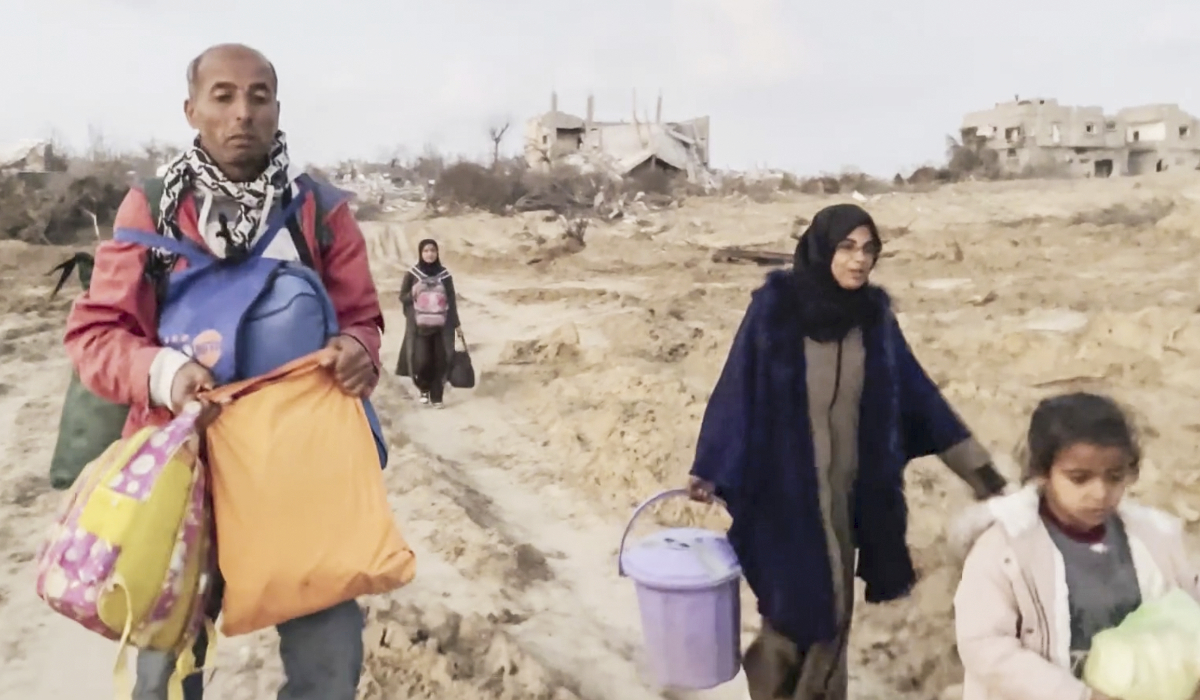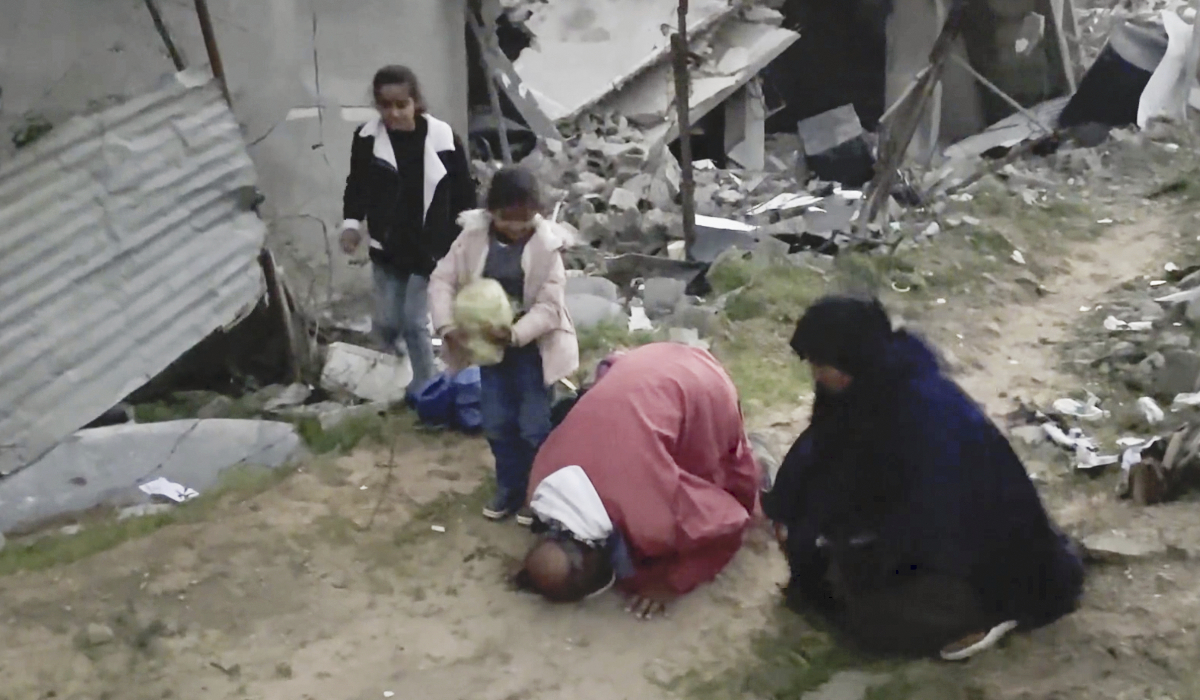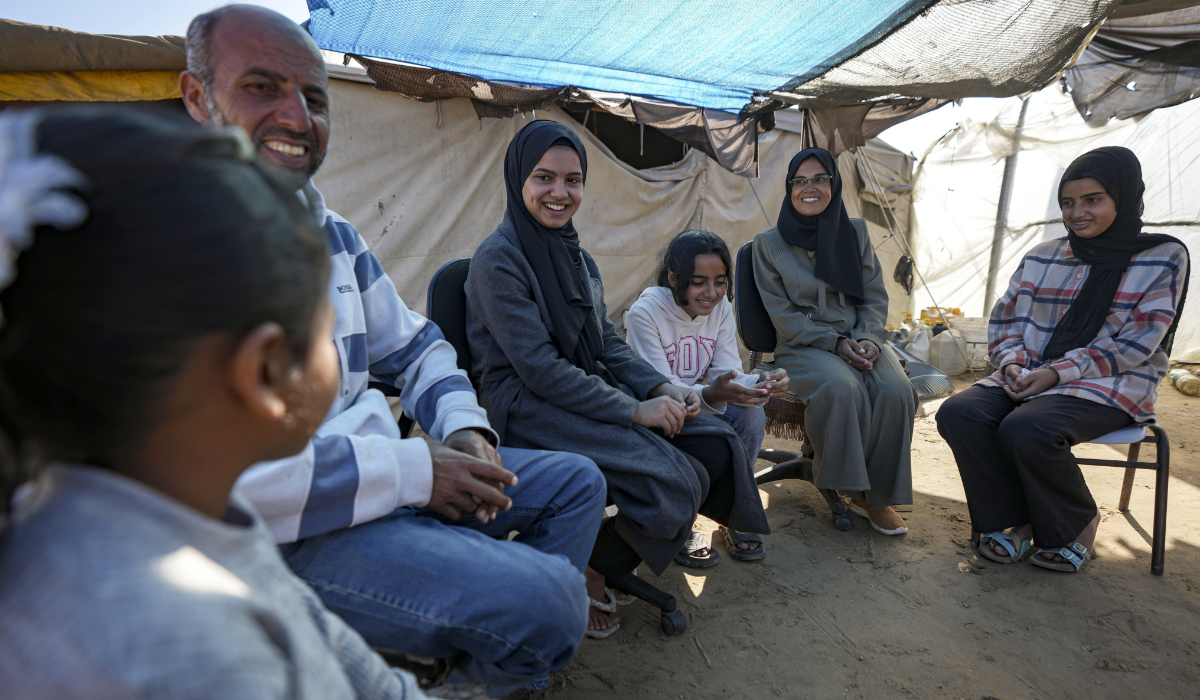CHICAGO: A prominent Arab American businessman from Michigan has called on Arab and Muslim communities to abandon the boycott strategy they adopted during Donald Trump’s first presidency and instead engage with his administration to address pressing issues, including the conflicts in Gaza and Lebanon. However, an Arizona civil rights attorney cautioned that the plea coincides with what he views as a concerning surge in anti-Arab racism and Islamophobia.
Speaking on “The Ray Hanania Radio Show,” Ned Fawaz, president of the Lebanese International Business Council and founder of the American Arab Chamber of Commerce in Michigan; and David Chami, a civil rights attorney representing students sanctioned by Arizona State University for anti-Israel protests, urged the community to prioritize dialogue over boycotts. They acknowledged what they view as Trump’s polarizing reputation and pro-Israel cabinet appointments, and argued that there is a rising tide of hatred toward Arabs and Muslims, but also highlighted the importance of engagement to influence policymaking.
Fawaz said that dialogue is essential to influencing US policy. “It’s bad to boycott. After all, we’re American. We have issues (other than just) the Middle East as well. And I think we should all dialogue and talk, and be ready to communicate with the president, with any administration, because we cannot just sit aside and do nothing.”

Donald Trump meeting with Arab American leaders in Dearborn, Michigan, on Nov. 01, 2024, days before the election./ Getty Images/AFP)
He urged Arab Americans to seize “every opportunity” to push Trump to end the violence and foster a climate for lasting peace, including support for the two-state solution for Palestinians. “Yes, always, negotiation makes better sense than boycotting. We believe in evolution. We do not believe in revolution. So, that’s the way it should be,” Fawaz said, highlighting the importance of engaging with the US president regardless of who holds the office, to address issues affecting both Arab American citizens and the Middle East.
Trump, who defeated Democratic rival Kamala Harris in both the electoral college and by popular vote on Nov. 5, remains a controversial figure in the Arab American community. However, as suggested by a pre-election survey by Arab News, many view Trump as the leader best equipped to end the Gaza conflict, despite his perceived closeness to Israel.
During his first term, Arab Americans overwhelmingly supported Democrat Hillary Clinton during the election and grew frustrated with Trump’s policies in office, including his anti-immigration stances and strong backing of Israel. The community boycotted several key initiatives, such as the 2020 Peace to Prosperity Conference in Bahrain, organized by Trump’s son-in-law Jared Kushner, and opposed the Abraham Accords, which normalized relations between Israel and some Arab states like the UAE, Morocco and Bahrain.
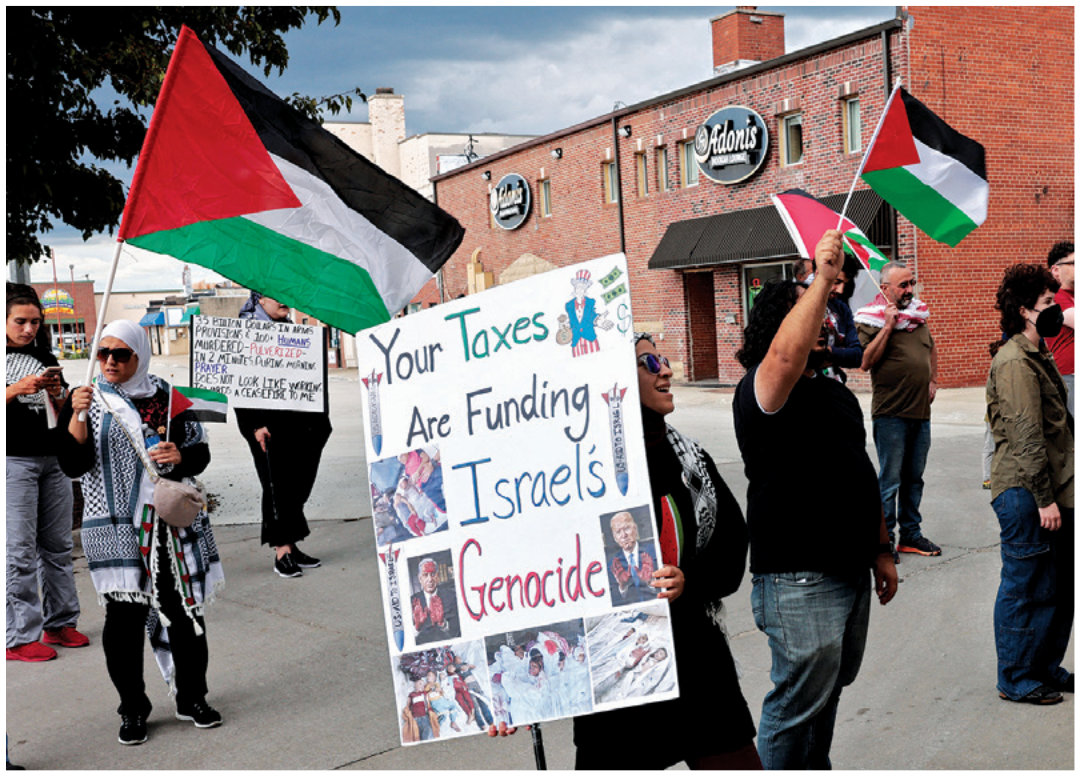
Pro-Palestinian demonstrators protest in support of the Palestinians who have died in Gaza outside of the Arab American National Museum in Dearborn, Michigan, on August 11, 2024. (AFP)
Adding to an already complex geopolitical situation, on Thursday, after months of deliberation, the International Criminal Court issued arrest warrants for Israeli Prime Minister Benjamin Netanyahu, former defense minister Yoav Gallant and Hamas official Mohammed Deif, accusing them of war crimes and crimes against humanity. The charges stem from the war in Gaza and the October 2023 attacks that triggered Israel’s extensive offensive in the Palestinian territory.
While the suspects are unlikely to appear before judges at The Hague — since Israel is not an ICC member — the announcement could influence the dynamics of the conflict. The full extent of its repercussions remains unclear.
In an almost bipartisan statement, the US strongly condemned the ICC’s decision, diverging from the more cautious responses of its allies. President Joe Biden called the arrest warrants “outrageous,” saying: “Let me be clear once again: Whatever the ICC might imply, there is no equivalence — none — between Israel and Hamas. We will always stand with Israel against threats to its security.” Mike Waltz, the incoming national security adviser, dismissed the ICC’s credibility, claiming its allegations had been refuted by the US government. “You can expect a strong response to the antisemitic bias of the ICC and UN come January,” he said.

Donald Trump meets with Arab American leaders at The Great Commoner cafe on Nov. 1, 2024 in Dearborn, Michigan, as he campaigned for the community's support for his presidential bid. (Getty Images via AFP)
Fawaz, while analyzing Trump’s potential influence in the region, acknowledged the former president’s unwavering support for Israel and his close alliance with Netanyahu, describing it as a possible obstacle. However, he highlighted Trump’s personal connections to the Arab community, noting that his daughter Tiffany is married to Lebanese American Michael Boulos, whose father, Massad Boulos, was a vocal supporter of Trump and the Arab Americans for Trump group.
However, Fawaz acknowledged the significant challenges posed by Trump’s cabinet selections. Many of his appointees are staunchly pro-Israel and have made controversial statements about Palestinians. These include the former governor of Arkansas, Mike Huckabee, nominated as US ambassador to Israel, who once claimed that “there is no such thing as Palestinians” and opposes the two-state solution. Republican Sen. Marco Rubio, expected to serve as secretary of state, has openly supported Israel’s military actions in Gaza, opposing calls for a ceasefire while advocating for additional funding and weaponry for Israel.
“The secretary of defense also has an extreme Zionist position. I think, even with all of that, we must continue to negotiate, continue the dialogue, to interact with the administration,” Fawaz said, referencing the nomination of Pete Hegseth, a former Fox News host and Iraq war veteran. “Hopefully there will (be) some people who are fair, who are good for the US government, they are good for the US people, good for the taxpayers and they see some fair issue,” he said. “They will not allow this kind of genocide that has taken place in Lebanon or in Gaza.”
Opinion
This section contains relevant reference points, placed in (Opinion field)
Since the outbreak of the conflict in October 2023, the US administration has consistently voiced its support for Israel, which has drawn widespread criticism for what many experts describe as excessive use of force. In 14 months of conflict, about 44,000 people, including one-third of them children, have been killed in Gaza, while more than 3,500 deaths have been reported in Lebanon, many caused by US-made and supplied weapons.
Speaking on a separate segment of the show, attorney Ahmad Chami claimed that there has been a surge in anti-Arab racism and Islamophobia, which he said is not an aberration, but a continuation of systemic hostility toward Arab and Muslim Americans, exacerbated by Israel’s wars in Gaza and Lebanon. Chami criticized the inconsistent responses of US politicians, claiming they are quick to act against discrimination targeting other groups but hesitant to address anti-Arab racism or Islamophobia for fear of being labeled antisemitic.
“We are too easily the villains for our government and our media,” Chami said, citing the Arizona State University lawsuit as an example of the suppression of pro-Palestinian protests. “We’re so worried about the perception that this anti-Israeli policy protest is going to have on the poor innocent Jewish Americans that we are willing to suppress free speech, and pass bills, and attempt to pass bills labeling Students for Justice in Palestine as ‘terrorist sympathizers’.”
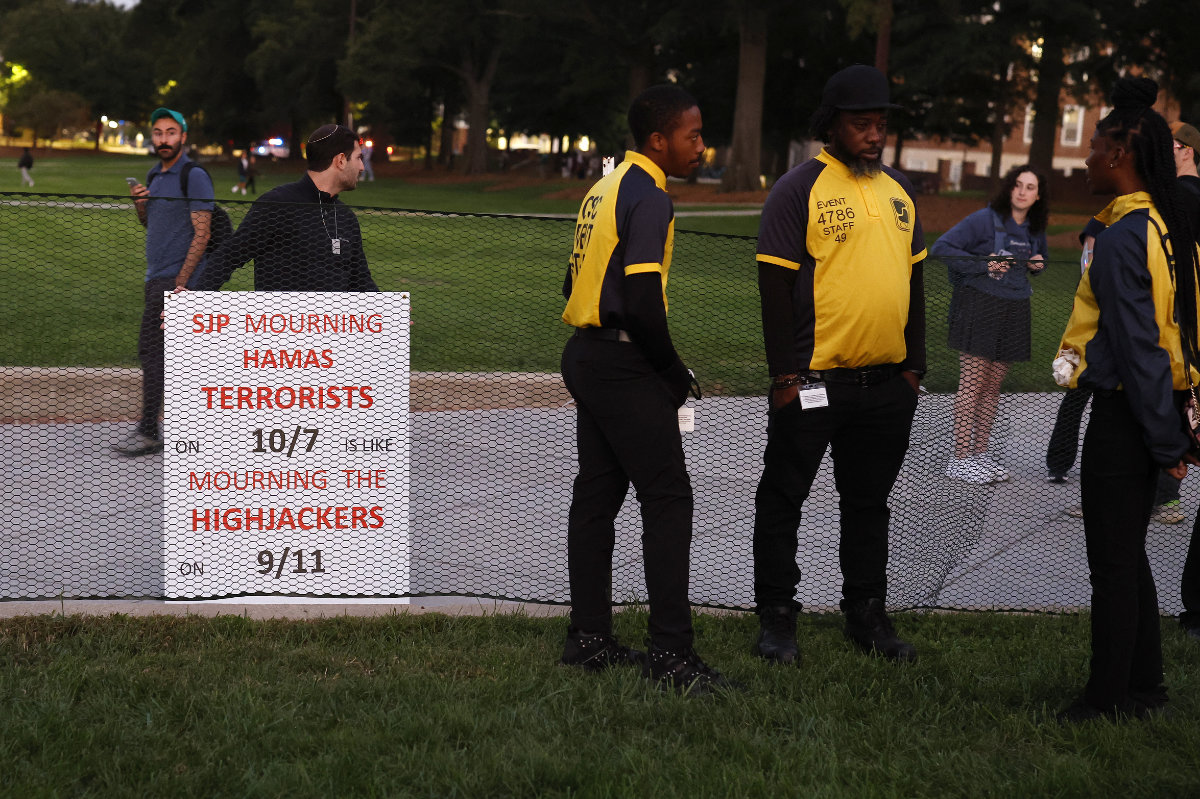
Counter demonstrators stand outside the University of Maryland campus in College Park, Maryland, display a placard labeling the Students for Justice in Palestine as Hamas sympathizers for opposing the Israeli war on Gaza nd Lebanon. (Getty Images via AFP)
Chami described this as a double standard that minimizes public attention to anti-Arab racism while amplifying narratives that favor Israel, and pointed to a rise in hate crimes against Arabs and Muslims in the US — an increase of 71 percent in the first half of 2024, according to Chami — that has been “vastly underreported.”
Citing the recent attack by a 64-year-old Jewish woman in Downers Grove, a suburb of Chicago, Illinois, who verbally and physically assaulted a Muslim man and his pregnant wife at a coffee shop because the husband was wearing a sweatshirt with the word “Palestine” on it, Chami argued that this atmosphere allows people to “feel protected and emboldened” to attack Arabs or Muslims with impunity.
“That is a systematic problem,” he said. “That is a problem with our government allowing these people to feel like, I can attack an Arab, I can attack someone I perceive as Muslim or even pro-Palestinian, and I’ll be fine.”
Chami linked this environment to political factors portraying Arabs and Muslims as terrorists, which he said devalues Arab and Muslim lives while elevating those of pro-Israel or Jewish individuals. Chami also revealed that documents from his lawsuit against Arizona State University suggest the Anti-Defamation League lobbied university officials to treat anti-Israel protests as acts of violence.

This combination of pictures created on November 12, 2024 shows some of the nominees of US President-elect Donald Trump to key posts in his incoming administration. Trump has not picked any Arab-American nominee so far, despite their strong support for him during the Nov. 5 US presidential election. (AFP/File)
“They (ADL) call themselves a civil rights organization, but they’re very clearly, in my view, an organization that is a political organization that is intended to protect not only Jewish Americans, but more importantly, Israeli interests,” Chami said, accusing the group of pressuring institutions like the ASU to silence pro-Palestinian voices.
Fawaz echoed the need for change at both local and international levels, pointing to Trump’s administration as a potential avenue for such transformation. “Change is always possible,” he said, citing Trump’s frequent cabinet reshuffles during his first term. While Trump has yet to appoint Arab Americans to key roles, Fawaz said that there are many qualified individuals in the community. “There are some capable Arab Americans in politics, all over the US,” he said. “And he can select someone who is fair, who can be our voice.”
He also highlighted efforts by Massad Boulos to act as a liaison between Trump and the Lebanese community. “We hope Boulos succeeds and secures a position where he can make a difference,” he said.
Although Biden initiated outreach to Arab Americans during his first year in office and appointed two dozen Arab Americans to White House and State Department roles, Fawaz criticized the administration for curbing their influence by barring them from speaking publicly on Middle East issues. He expressed hope that this would change under Trump’s leadership, though, in this increasingly intricate political landscape, much remains to be seen.








